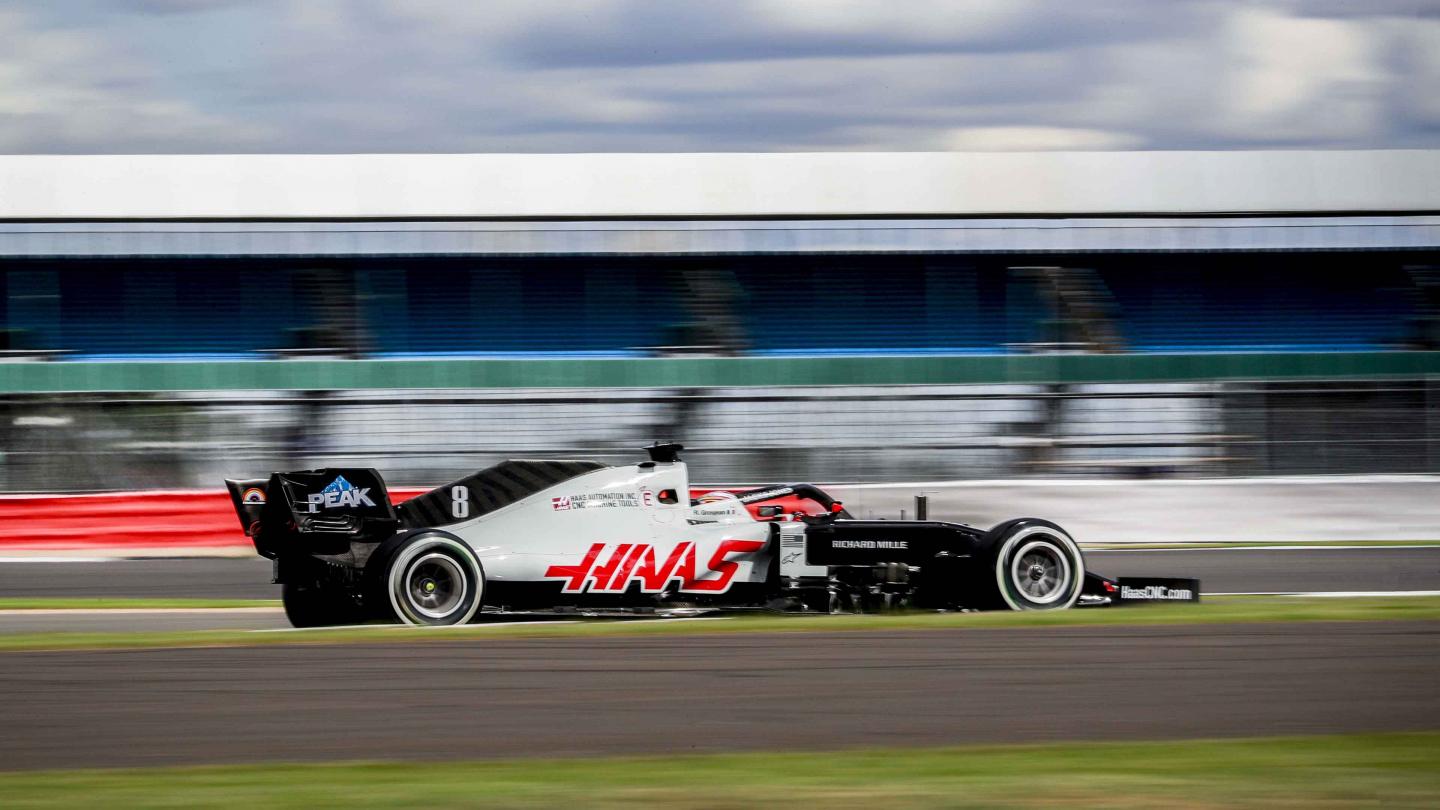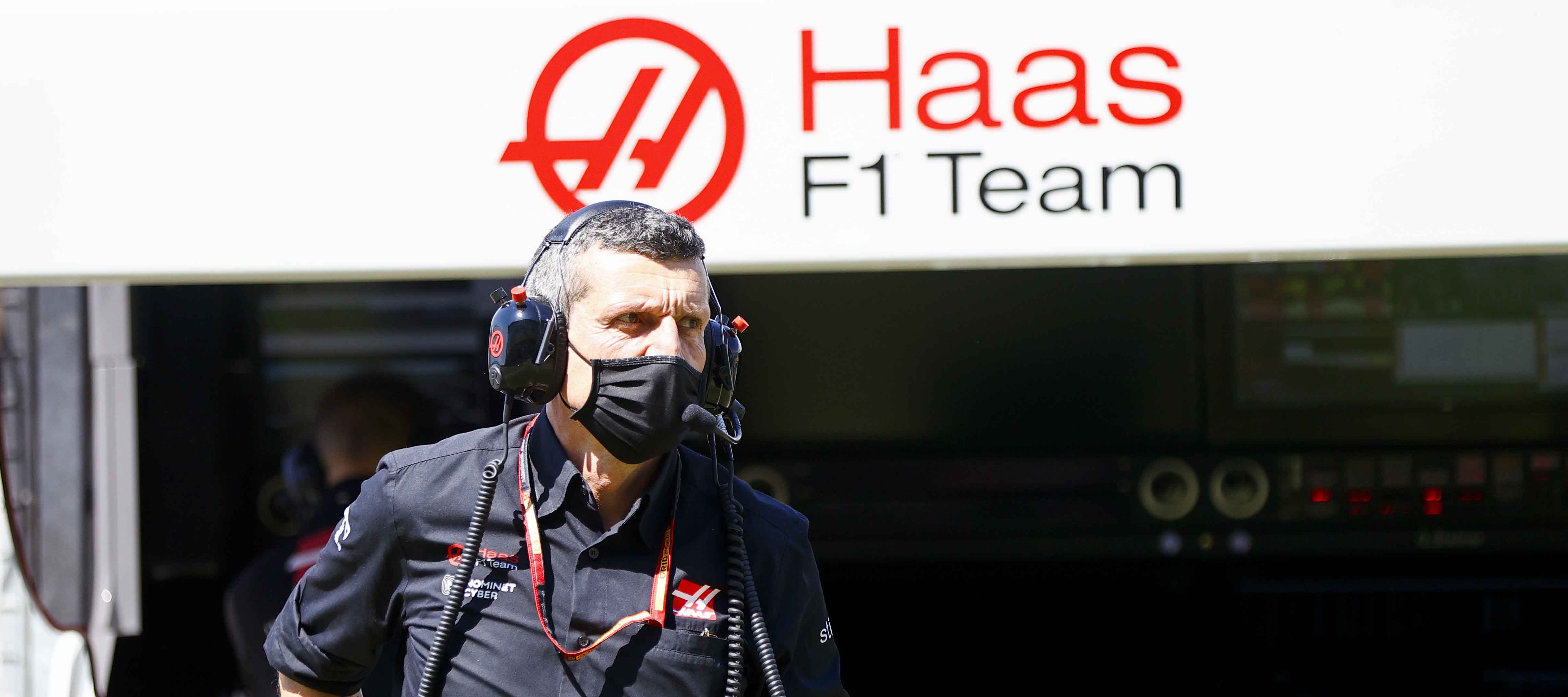Formula 1 70th Anniversary Grand Prix Preview
August 4, 2020
We preview the Formula 1 70th Anniversary Grand Prix, with Guenther Steiner providing his views ahead of the second Silverstone race.
When 21 cars lined up on the grid at a converted Second World War airfield in 1950 it marked the start of a championship that would grow exponentially, create heroes, and build a fanbase of millions. Now, after 1,022 races at 71 circuits in 32 countries featuring 765 different drivers Formula One is back where it all began for the 70th Anniversary Grand Prix.
Silverstone will host the second of back-to-back races in Britain, after last weekend’s British Grand Prix at the same venue, for the fifth round of the 2020 campaign. In order to commemorate the seven decades of the Formula One World Championship, which began at Silverstone on May 13 1950, the event will be titled the 70th Anniversary Grand Prix. It is the first time a Formula One event has not been named after a country, province or city.
Haas F1 Team remains the championship’s newest and brightest entity, participating in 87 of those grands prix since it joined the paddock at the start of 2016. It has recorded its own successful chapters to the rich tapestry of Formula One’s 70-year history and drivers Kevin Magnussen and Romain Grosjean are keen to add another memorable page to the book at Silverstone this weekend.
For the 70th Anniversary Grand Prix it will be the same venue, same teams, same drivers and same regulations as the British Grand Prix but with a slight tweak from tire supplier Pirelli. It has moved one step softer with its three compounds compared to last week’s encounter, opting for the C2, C3 and C4.
The 70th Anniversary Grand Prix will take place across August 7 to 9, with two Friday practice sessions, a final build-up session and qualifying on Saturday, prior to the 52-lap race on Sunday, which is due to begin at 14:10 local time (09:10 EST/13:10 GMT).

Guenther Steiner, Team Principal
The old phrase states ‘necessity is the mother of invention’ – do you feel that applies to team strategy currently with some bold calls at the Hungarian Grand Prix and again in Sunday’s British Grand Prix?
“We make these calls because if you have nothing, or at least little to lose, you need to do something different to make something happen. As a team we just decided to take a little bit more risk because these things can go backwards pretty quick as well, or against you, but once we made points and unfortunately on Sunday we didn’t. We could have put ourselves in a position to score points if not for the pitstop issue for Romain (Grosjean) in engaging first gear. If the opportunity arises to do something different – we will do it and we are doing it.”
What are the key takeaways from the British Grand Prix that can be applied to this weekend’s 70th Anniversary Grand Prix at Silverstone?
“What we learned last weekend is that the car is not too bad on race pace – Romain was competitive in the midfield. What we need to do is try to get better in qualifying, which at this moment in time is difficult. But that’s what we learned - in racing at Silverstone, we can play in the midfield. We just need to get the best out of qualifying so we can start in a position so we can make moves. If you start at the back it’s very difficult to move forward with the air being so dirty, it’s very difficult to advance.”
What are the positive elements you see emerging within the team this season amongst the challenges faced both on and off-track?
“The positive element is really that all the people on the team are highly motivated to keep on going. We are all happy to still be here and everybody’s fighting really hard to stay here. Even if we haven’t got the best package of car at the moment, we’re always fighting and giving our best. There’s a lot of effort involved, a lot of long hours, and if we keep this going, we’ll be in a better position pretty soon.”
From an engineering standpoint, would you be happier racing at familiar circuits – with all the data and experience you have as a team, or do you see the recent introduction of the likes of Mugello, Nürburgring, Portimao and Imola to the 2020 F1 calendar as a positive opportunity – a blank canvas with everyone starting from scratch?
“I see the new races as being exciting and challenges give you opportunities. I hope we can take some opportunities in those races where everybody almost starts with a blank canvas. Some of the big teams will be doing testing at these tracks with two or three-year-old cars to get some data from it, that’s not forbidden by the regulations, so we can’t do a lot about it. But still, even if you go there with an old car, it’s still a new race track for the driver. It should give you some advantage, because something unforeseen can come, and your preparation – the well-funded teams have much more resources, they can do a much more thorough job to prepare for a new event. That said, I find it quite exciting and I’m sure there will be opportunities, we just need to be able to take them.”
What are the steps the team makes to prepare for those new circuits? Is the simulator the key element in those preparations?
“The simulator is a key element. We’re looking right now if we’re going to do some sessions. We all know we have a tight budget and we need to spend our money wisely, but maybe this is one of these things we will be doing. This would be a good investment and a very important thing to do.”